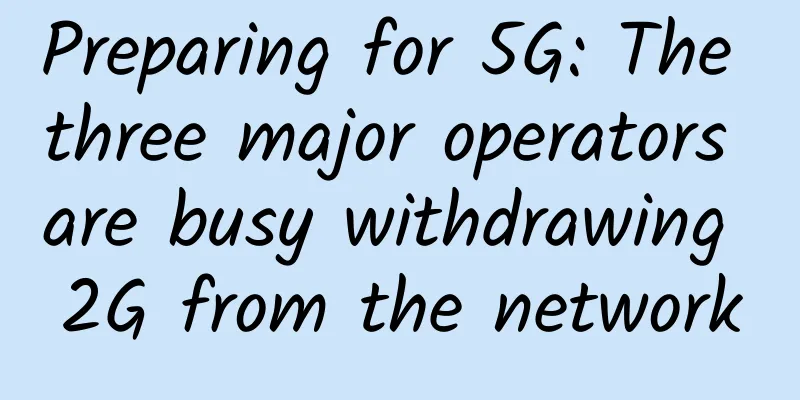McKinsey: 5G development is not fast, and 5G upgrades will reach a climax in 2022

|
The 5G era is coming. How does the industry view 5G technology? McKinsey, a global consulting firm, recently released a survey of major global telecom operators, from which we may be able to get a glimpse of the industry's views on 5G. McKinsey conducted a survey of 46 CTOs of large telecom operators from around the world, using a combination of telephone, online surveys and interviews. The subjects selected by McKinsey all play an important role in the global telecom industry. Among them, 25% have global business, 25% are European telecom operators, 20% are from North America, 20% are from Asia, and the remaining 10% are from the Middle East, Latin America and Africa. Currently, the market's views on the prospects of 5G are divided into two completely different camps. Optimists believe that the low latency and high load brought by 5G technology will help improve telecommunications efficiency, but pessimists believe that 5G has not yet been truly implemented. They are mainly worried that considering the huge investment in the future commercialization process, the benefits brought by 5G commercialization in the future may be limited. According to McKinsey's survey report, the industry believes that the 5G upgrade will reach its climax around 2022. At that time, the operators' investment in 5G will also increase, but the speed and magnitude of the increase will not be as drastic and shocking as many people imagine. McKinsey's report believes that large-scale upgrades to 5G will not occur in the next one or two years, but there will be certain differences between regions. For global telecom operators, the main task this year is to prepare for 5G and plan 5G projects. 61% of respondents said that large-scale upgrades to 5G will occur between 2020 and 2022, and only 30% of respondents said that 2020 will be the year with the fastest 5G upgrades. The industry is still relatively cautious about investing in 5G The industry believes that the biggest uncertainty for 5G technology comes from the business model, economic benefits, and difficulties that other emerging industries may encounter when 5G is implemented. Despite this, the industry is full of confidence in 5G technology, but it is not clear whether 5G technology can bring products and services that consumers are willing to buy. Therefore, most industry experts believe that 5G is most likely to change mobile broadband and the Internet of Things, rather than wireless Internet access and mobile applications. In other words, after 5G is implemented, it will not significantly change people's lives like 3G and 4G, but the services provided by 5G are still valuable. The McKinsey survey also shows that telecom operators are considering different business models due to the uncertainty of the economic benefits of 5G. In the past, few operators have made it clear that they are willing to build 5G infrastructure on their own or share infrastructure with other operators. However, in this survey, 93% of respondents said that they hope that the 5G infrastructure in the future can be shared, and about 90% of respondents said that they hope that the 5G infrastructure will be built by a third party other than the operator and can support services provided by several operators. What is also surprising is that the investment these telecom operators intend to make in 5G (mainly in their operational support systems and business support systems) is not as much as people imagined. In summary, McKinsey said that this survey report shows that 5G is still an extremely important cutting-edge technology, but this technology has not yet been implemented in many scenarios. Many countries also hope that 5G technology can help boost their economies. However, the industry's attitude towards 5G is relatively cautious, especially the short-term expectations of 5G technology. The industry is still watching the economic benefits brought by 5G technology. In the eyes of some operators, 5G technology is not an important way to make money in the future, but it may be a huge potential risk. Development of 5G: North America and Asia are ahead of Europe In the early 2000s, 5G technology was just starting to take off in various places, and the technical level was similar, but now there is a clear differentiation. The two major operators in North America have already put 5G into commercial trials, but Europe is relatively skeptical of 5G, which is completely different from when 2G and 3G technologies were introduced - Europe was the leader in technological innovation at the time. The reasons why Europe is slowing down in 5G technology are also complicated. First, after the 2008 crisis, Europe's economic growth rate was lower than that of the United States and China. Second, the European market is small and fragmented, making it difficult to obtain large-scale investment in 5G technology. Europe's lower telecommunications rates also make it less motivated to update technology. In terms of the implementation of 5G, North American operators and telecom operators with global operations have made the fastest progress in 5G, followed by Asian operators, while European operators are relatively lagging behind. Fighting for market dominance: The most important consideration for telecom companies in developing 5G In public, telecom operators usually say that one of the priorities for developing 5G technology is the Internet of Things. However, in the McKinsey report, "consolidating, seizing or regaining industry leadership" is the biggest driving force for telecom operators to develop 5G technology. The second biggest driving force is consumer experience, and expanding telecom load is ranked third. In other words, telecom operators do not regard the Internet of Things as the most important factor in developing 5G. Regarding the implementation of 5G technology, most operators have not yet started their implementation plans. About one-third of the surveyed operators have 5G pilot plans, but only a very small number of operators have approved relevant business plans, and 5G commercialization is still in its early stages. When it comes to the economic returns of 5G, most operators said they are still unclear about it. About two-thirds of operators said they still have doubts about how to invest in 5G, and about 60% of respondents said that their biggest concern in the commercialization of 5G is that there is no successful business case yet. In addition, most respondents said that 5G technology will increase company costs. The popularization of 5G technology not only requires the laying of new telecommunications networks, but also requires the upgrading of existing networks. Only 11% of respondents said that 5G technology will reduce investment in the entire industry. Regulation is also an area of concern for the industry. Nearly a quarter of respondents said that the lack of a clear regulatory plan is an important reason for them not to invest too much in 5G technology. |
<<: What is missing from licensing 5G for commercial use?
>>: An article reveals the practice and thinking of edge computing reference architecture 2.0
Recommend
How to integrate network management tools
In the process of curbing the proliferation of ne...
Why SD-WAN Won’t Kill MPLS
"SD-WAN will replace MPLS" is a common ...
In the 5G era, industry market users’ choice of public network or private network
This year, 5G has entered its first year of comme...
Is WeChat and QQ file transfer too inhumane? Here's how to fix it
For example, if the other party sends a file to y...
CloudCone Flash Sale starts at $15.5/year - 1GB/55GB/3TB@1Gbps/Los Angeles Data Center
CloudCone launched a flash sale in April, offerin...
What is the charm of IPFS?
Fudan University has established the IPFS System ...
Spiderpool: How to solve the problem of zombie IP recycling
In the Underlay network, how to recycle zombie IP...
DesiVPS new 1Gbps unlimited traffic VPS annual fee of $29.99, free IP change once a month, Los Angeles data center
DesiVPS has released two promotional packages, wh...
NTT provides customers with software lifecycle management service SIDS based on Cisco EA
Why is Software Lifecycle Management Critical to ...
Half-year review: 10 major Internet company acquisitions in 2018
The networking market has been an area of frequ...
In the 5G era, how can telecom operators lead the future through IoT services?
Major global telecom operators have been explorin...
The 5G commercial license has just been officially issued! Here are ten issues that you should pay attention to
On the morning of June 6, the Ministry of Industr...
Racing against time: Why does Weimob's data recovery take so long?
Several days have passed since the WeMall "d...
A Brief Analysis of Data Flow Technology in Data Centers
What is the most valuable thing in a data center?...
Not enough data? Facebook will help you find free WiFi nearby
[[177139]] According to foreign media reports, Fa...








![[6.18]spinservers: $89/month-2*E5-2630Lv3/64GB/1.6TB NVMe/10Gbps bandwidth/Silicon Valley data center](/upload/images/67cabe68b64e4.webp)
